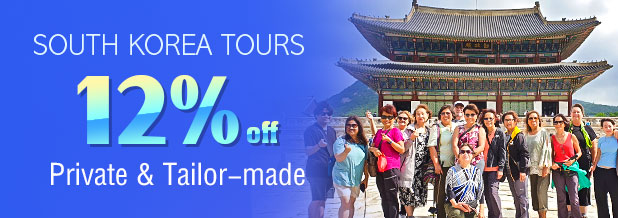- Top Things to Do
- Transportation
- Travel Tips
South Korea Travel Tips
Visa Information
As of now, nationals of 117 countries are allowed to enter South Korea without a visa. Among them, Canada passport holders can enjoy visa-free entry for a stay of not exceeding 180 days. Nationals of some countries such as EU members, Iceland, Serbia, USA, Japan, Singapore, Brazil, Switzerland, Thailand, Norway, Australia, Malaysia, and Mexico can go there freely for a stay of not more than 90 days. Nationals from Lesotho, Portugal and Russia can enjoy visa-free entry to Korea for not exceeding 60 days. Nationals from Albania, Monaco, Bahrain, Brunei, Cyprus, South Africa, Fiji, Qatar, etc. can enter Korea freely for a stay of 30 days. Aside from the above-mentioned Korean visa policy, there are also other policies which can be found at the official website of Korean Tourism Bureau.
Accommodation
The best hotels in Seoul should be five-star ones, costing USD150-300 per night. The four-star hotels may cost USD80-150 per night. Three-star hotels may cost USD50-100 per night. If tourists go there for shopping purpose, they can accommodate in Myeong-dong or Dongdaemun. The Westin Chosun Hotel Seoul, Grand Ambassador Seoul associated with Pullman, Plaza Seoul Autograph Collection, Shilla Seoul, and Millennium Seoul Hilton are the famous ones in Seoul.
Food
Usually, the locals prefer to bland food. They eat rice, noodles, and porridge in daily life. Kimchi which is made of seasoned and fermented vegetables is the most famous food in the country. When visiting Korea, tourists are highly recommended to taste Kimchi. Besides, Bibimbap, another famous food made of rice mixed with side dishes, is worth a taste.
Shopping
Shopping is an important part when traveling to a different country. To some extent, Korea is a shopping paradise. Food, clothing & accessories, cosmetics, ordinary items, famous luxury brands and the latest fashions are all favorite commodities for tourists. Myeong-dong, Lotte Duty Free, Cosmetic Road, the Shilla Duty Free, and Dongdaemun Shopping Mall are the famous shopping areas in the country.
Currency and Banking
Credit cards are widely used in Korea. Visitors can pay by international credit cards such as Visa, Master and American Express at major hotels, restaurants and department stores. Besides, traveler's check is also used in some stores, but it is gradually replaced by cash and credit cards. Tourists can exchange foreign currency into Korean won at some banks, exchange centers and other authorized exchange outlets. Both Incheon International Airport and Gimpo International Airport have bank branches and money changers for currency exchange. Many ATMs are provided in major cities for visitors to withdraw local money.
Electricity
The Korean standard voltage is 220 volts with a frequency of 60Hz. The round two-pin sockets are used in the country, so visitors should bring plug adapters with them, or they can borrow one at the hotel reception desks or buy one at the nearby convenient stores, airports, duty-free shops or shopping malls.
Holidays and Festivals
Many holidays and festivals are celebrated in the country. The major ones include New Year's Day, Seollal, Buddha's Birthday, Memorial Day, National Foundation Day, Chuseok, etc. Seollal, the most important festival in Korea, is held on January 1st of lunar calendar. It is almost the same as the Spring Festival of China. Most companies will give a vocation. Many people will go home for family reunion during this period. All family members will get up early to dress new clothes and then kids will pay respects to elders. Tteokguk, Manduguk and other traditional food are eaten in Seollal. Families may also fly kites or spin tops at that time.
Communication and Internety
Visitors can use public telephones at busy streets, bus stations, railway stations and subway stations to make international calls. Those telephones can be paid by swiping cards or tossing coins. The cards can be purchased at the nearby convenient stores or shops. There are three communication operators in Korea, including SK, KT and LG. Tourists can buy SIM cards at airports, or near some attraction sites. The whole country is widely covered by 3G or 4G signals. Free WIFI is provided in many cafes, hotels, restaurants, airports, railway stations and bus stations.
Useful Numbers
Calling Code: +82
Police: 112
Fire: 119
Medical Emergencies: 1339
Further Reading:
Things to Do in South Korea South Korea Transportation

